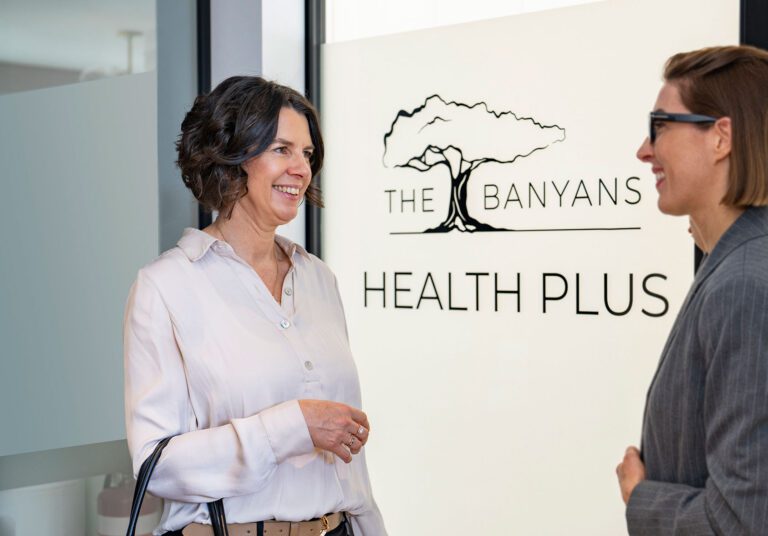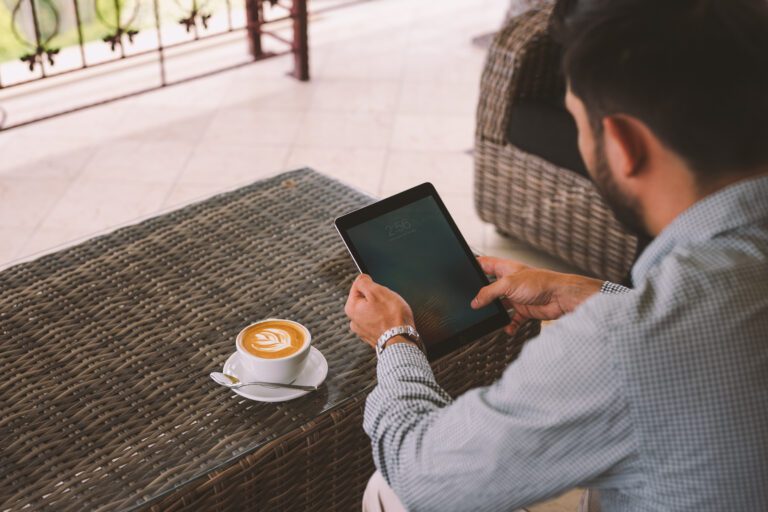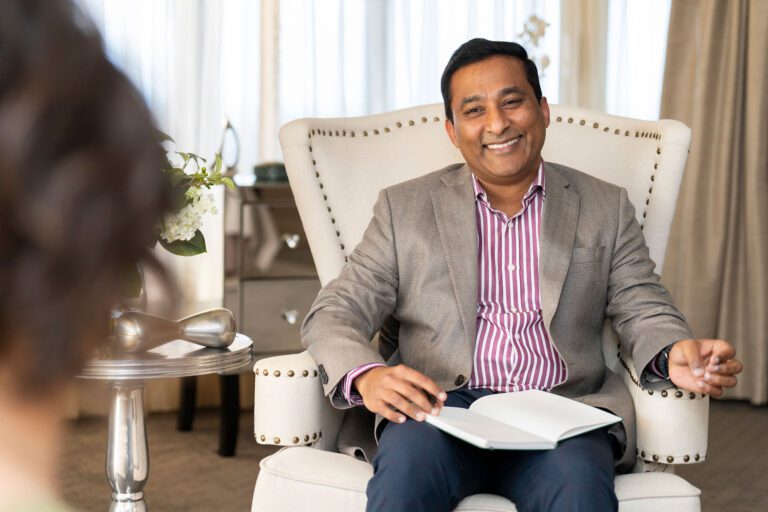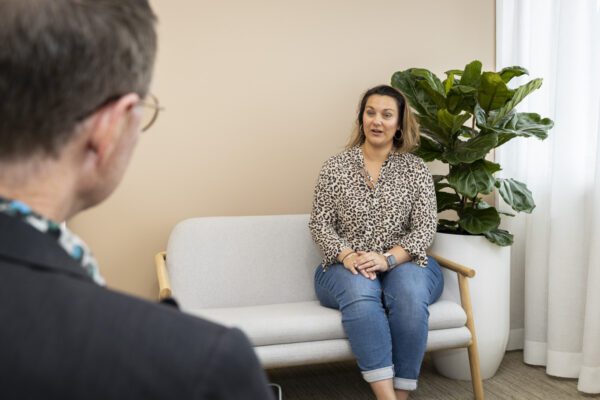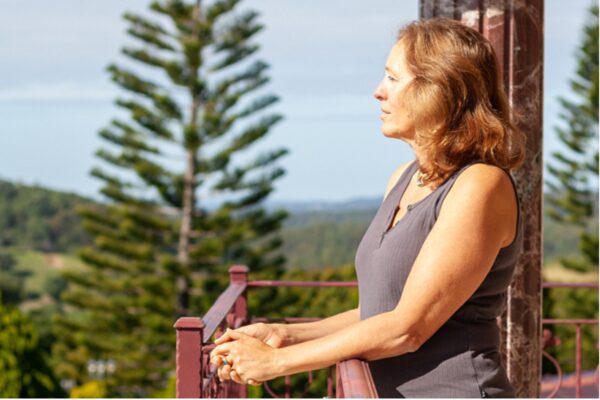
With a large number of Australians in lockdown, quarantine, and isolation due to COVID-19, all Australians need to look carefully at how to safeguard their mental health in 2021 and beyond.
It’s becoming increasingly clear – and our political leaders are now articulating this – that lockdowns will be the grim reality for both the economy and our mental health while COVID-19 vaccination rates remain below the projected 70% needed for the country to return to pre-pandemic freedoms.
Previous lockdowns have taught us it’s imperative to prioritise our mental health.
“Doing everything you can to help keep your mental health positive and strong has never been more important,” The Banyans Health and Wellness Clinical Director Peter Hayton says.
“Lockdowns, social isolation, financial stressors, and unemployment are severely impacting Australia’s mental health. The number of people seeking help for their mental health in Australia is increasing with each lockdown.”

Tips for surviving lockdown
“There are a number of things you can look at implementing in your everyday life that can help build mental health and resilience,” says Peter.
“Not everything will work for every individual, but finding something that fits your life and lifestyle at this point in time can make a difference to the quality of your mental health in COVID-19 lockdown, particularly if you’re in quarantine.”
Even when not in lockdown, making positive alterations to your daily life will build mental resilience in a year when it is undoubtedly going to be needed.
Remember everyone is doing their best
No-one enjoys lockdowns (apart from our pets!). Be kind to yourself and others. Try to focus on the positive moments in each day and make moments to engage positively with the others in your household – a quick hug with your partner or tickle your kids as you go past. Pets are great for distraction and providing comfort during low points.

Create things to look forward to
It is your responsibility to take control, as much as you can, of your life. Plan something small to look forward to each day. Making a different coffee (order some online from places you’d rather be), sit in the sun for 10 minutes, or schedule a call to a parent or loved one. You are responsible for making the plans for something small in your life to look forward to. A 2020 study by the University of Surrey in the UK suggests the most effective strategy for managing the emotional burden of lockdown may be to look toward positive aspects of the future.
Lower your expectations
If you have always lived with high expectations, now is the time to examine how these expectations have impacted your personal and professional relationships, work, and life in general. Have these high expectations been helpful in previous lockdowns? If high expectations have caused strained relationships and decreasing mental health in previous similar situations, then look at lowering them. Exchange expectations for hope. Plan to catch up with a friend in person in a month’s time, and hope it will happen instead of counting on it to happen.
A strong mind always hopes and has always cause to hope.
Thomas Carlyle
Do something that is good for you
Create a habit or a routine that you will miss when lockdown finishes. Cook healthy meals, exercise at a different time of the day, or invest time in something that makes you happy. Use the good crockery, the best bubble bath, and wear your favourite jewellery. Don’t save your ‘good’ things for later.
Try to laugh
Find anything that makes you laugh and mindfully engage with it each day, perhaps a meme, a friend, an animal or a favourite movie or show. Anything that gives you a giggle will increase your intake of oxygen-rich air, stimulate your heart, lungs, and muscles, stimulate circulation and aid muscle relaxation.

Schedule a significant part of your day to be tech-free
Our brains burn out when we spend too much time on technology, just as our bodies burn out if we exercise too much. With Australians spending around a third of their waking hours just on their smart phones, our brains are in danger of suffering serious consequences. Most of us have boundaries around when, where, and how we eat food, and the same thought process should be given to using technology. Schedule tech-free time in your day and create a space that is tech-free within your home.
Greet the day as you’d like it to be
The way we spend the first few moments of the morning has a significant impact on how we feel for the rest of the day, and that is why many cultures view it as a sacred time of day. Journalling, meditating, reading positive notes, or simply stretching and taking a few deep breaths will help train your brain to be positive today.
Just one small positive thought in the morning can change your whole day.
Dalai Lama
Avoid negative triggers
Nothing is more important than your health, and avoiding people and situations that have impacted your mental health in previous lockdowns will help to contribute towards different thought patterns each lockdown.
If avoidance is impractical or impossible, talk to a friend or professional to help you plan how to manage your responses.
“It is very important to know and acknowledge what triggers a decline in your mental health,” says Peter Hayton.
“Make a conscious effort to check in with yourself each week. Determine how you are feeling, how you are dealing with negative triggers, and you can determine when and how you can take action for your wellbeing.”
Related: Anxiety and self compassion – when it’s time to ask for help
Set boundaries for work hours
If you are working from home, draw a line in the sand, give yourself a ‘stop work’ time each day. With the highest number of Australians ever now working from home, the line between work and personal lives is very blurred. It is important to set boundaries and give yourself non-work time at home. Create a transitional time for yourself after your workday is finished. Go for a walk, change clothes, have a shower – create something to punctuate the difference between work and home life.

Identify your coping skills
We’ve all felt overwhelmed and unable to cope at some stage in the past 18 months, and 22% of Australians deal with a mental health issue each year. What are the things that help you when everything is too much? What improves your mood, and helps you be calm? Deep breathing, yoga, calling a trusted friend, practicing gratitude, or listening to a favourite playlist can all be helpful. Identify your best coping strategies, and deliberately use them regularly.
Learn from yesterday, live for today, hope for tomorrow.
Albert Einstein
Keep medical appointments
Previous lockdowns showed that people delayed going to the doctor and seeing specialists. Keep your appointments, and ensure you keep on top of ALL of your health needs.
Remember the lessons learnt from previous lockdowns:
- Stay connected with friends and family.
- Exercise regularly, as it reduces stress, and helps you sleep. Factoring movement into your day will make a big difference to your mental health.
- Keep alcohol consumption to a minimum.
- Listen to more music.
- Catch up on sleep. Use lockdown to try and get a minimum of eight hours sleep.
- Limit the amount of time you spend listening and watching the news and on social media.
- Eat as healthily as you can. Challenge yourself to eat the rainbow and look at buying tinned organic food so you always have something healthy in the cupboard.
- Reach out for help and offer to listen to others who need to talk.
Related: Covid stress syndrome is real
Reach out
Please seek help and talk to your General Practitioner about your mental health concerns.
General Practitioners in Australia can provide assistance consistent with the principles and actions of psychological first aid to people who have experienced a traumatic event or are needing help throughout the pandemic. They can assist you in reducing initial distress and will provide support to promote adaptive coping practices.
The Banyans Health and Wellness can help you or a loved one experiencing mental health concerns as a result of COVID-19 lockdowns.
The Banyans Health and Wellness is a private treatment centre working with people experiencing mental health, substance dependency, and chronic stress conditions.
Our holistic approach incorporates medical, psychological, and natural therapies to ensure the highest standard of research-based treatment and support while helping you develop a plan for recovery.
The Banyans Health and Wellness is available 24/7 to help you begin your journey towards a life with positive mental health. You can call anytime on +61 1300 226 926 or submit an online enquiry to begin learning how we can help you rediscover the fullness of life.




